Irrigation salinity stress is fast becoming one of agriculture’s most persistent threats. It quietly diminishes yields, weakens crop health, and forces growers to use more water and fertilisers simply to maintain standard performance. In arid and semi-arid regions, the issue is particularly severe due to high evaporation rates and the widespread use of poor-quality irrigation water. Over time, salts build up in the soil, disrupting plant metabolism and harming productivity. As salinity increases, so too do the levels of sodium and chloride ions in the soil, making it harder for plants to absorb water and nutrients. The result is visible stress: leaf burn, stunted growth, and a decline in fruit quality.
Traditionally, growers have attempted to manage salinity through improved drainage, flushing techniques, or by cultivating salt-tolerant crop varieties. While these approaches have merit, they rarely offer the resilience needed, particularly for high-value crops such as tomatoes, peppers, and grapes. Increasingly, growers are turning to biostimulants as an additional layer of protection grounded in plant science.
Understanding Biostimulants and Their Role in Salinity Stress
Biostimulants are not fertilisers. They do not directly feed the plant with nutrients. Instead, they enhance natural plant processes, enabling crops to absorb nutrients more efficiently, cope with stress more effectively, and grow with greater resilience. Derived from various sources, including seaweeds, amino acids, and protein hydrolysates, biostimulants support the physiological functions essential during stress conditions.
Among the most widely studied and effective are those made from the brown seaweed Ascophyllum nodosum. Rich in polysaccharides, polyphenols, and other bioactive compounds, extracts from this seaweed have been shown to help plants tolerate environmental stresses such as salinity, drought, and heat. However, not all seaweed extracts are the same. The method of extraction, concentration, and molecular composition all influence their efficacy.
One particularly advanced formulation is BLOCSAL®, a biostimulant developed by Brandon Bioscience using their PSI® 475 Precision Technology. This product is specifically designed to enhance plant performance under saline irrigation conditions, combining marine bioactives and protein hydrolysates to prime the plant’s systems.
How Salinity Stress Affects Crops
Salinity stress arises when excessive salts in the soil interfere with a plant’s ability to absorb water. This leads to two major problems: osmotic stress, where the plant cannot take in sufficient water to sustain growth, and ion toxicity, where sodium and chloride ions accumulate in plant tissues, damaging cells and disrupting nutrient uptake.
Under such conditions, plants suffer from water deficiency even when moisture is available. Growth slows. Leaves yellow. Roots shrink. Fruit quality deteriorates. Yields fall.
To survive, plants activate internal defence mechanisms, accumulating osmolytes like proline and sugars to retain water, using transport proteins to regulate salt levels, and triggering stress-response genes. Biostimulants such as BLOCSAL® are designed to support and enhance these natural coping strategies.
BLOCSAL®: A Precision Solution Backed by Science
BLOCSAL® supports crops on multiple fronts. Firstly, it promotes the accumulation of osmoprotectants like proline and soluble sugars. These compounds help retain water in plant tissues, allowing crops to remain hydrated even under saline conditions.
Secondly, it improves ion balance by encouraging potassium uptake while limiting the movement of sodium from roots to shoots. Maintaining a favourable potassium-to-sodium ratio is crucial for managing salt stress, as it reduces cellular damage and boosts nutrient efficiency.
Thirdly, BLOCSAL® stimulates genetic pathways related to salinity stress response. Trials in tomatoes have shown that genes such as SOS1, NHX1, and HKT1 are upregulated following treatment. These genes help plants remove sodium from sensitive tissues or safely store it within vacuoles.
Externally, BLOCSAL®-treated plants tend to develop stronger root systems and more biomass, even when growing in saline environments. Leaf colour and chlorophyll content are preserved, which helps maintain photosynthesis and energy production throughout stress episodes.
Real-World Impact on Tomato and Other Crops
In both field and greenhouse trials, BLOCSAL® has significantly improved the resilience and recovery of tomato crops exposed to saline irrigation. When treated with BLOCSAL®, plants irrigated with saline water of high electrical conductivity maintained better relative water content and produced greater yields. In some cases, yields increased by as much as 48% compared to untreated controls under the same conditions.
Not only did yield improve, but so did fruit quality. Treated tomatoes exhibited higher °Brix values, indicating sweeter, more marketable fruit. Moreover, BLOCSAL® helped crops recover more rapidly once the stress was removed, demonstrating lasting protective effects even after salt exposure ceased.
Other crops such as peppers and grapes have also shown promising responses. Benefits included improved flowering, greater fruit set, and more consistent yields despite the challenges of poor irrigation water quality.
How It Works: The Science Behind BLOCSAL®
BLOCSAL®’s strength lies in its proactive mode of action. Rather than simply treating symptoms after stress occurs, it prepares the plant in advance. This process, often referred to as induced tolerance, involves stimulating the production of protective proteins, enhancing water channels known as aquaporins, and modifying gene expression to better manage salt stress.
Its formulation includes a carefully balanced blend of seaweed-derived carbohydrates and peptides, processed in a way that preserves bioactivity. Through Brandon Bioscience’s PSI® Technology, each batch is tested and validated for consistency, ensuring that every application delivers the desired physiological effect in crops.
Application Guidelines and Flexibility
BLOCSAL® is simple to use and fits seamlessly into existing crop management practices. It can be applied as a foliar spray or via fertigation, and it is compatible with most common agricultural inputs. The recommended dose ranges from 1 to 1.5 litres per hectare, ideally applied during key crop stages such as pre-flowering, early fruit set, or upon early signs of water stress.
Thanks to its mode of action, BLOCSAL® is effective whether used preventively or during stress periods. Applying it before stress occurs helps prime the plant’s natural defence systems, while mid-stress applications support recovery and protect sensitive tissues.
Its compatibility with other products allows for streamlined tank-mixing, reducing labour and operational costs. BLOCSAL® is approved for both conventional and organic systems, carrying certification for use in organic farming.
The Sustainability Edge
In addition to immediate yield benefits, BLOCSAL® plays an important role in achieving long-term sustainability goals. Crops under salinity stress often suffer from poor nutrient uptake, leading growers to overapply fertilisers and over-irrigate. These practices not only increase production costs but also contribute to nutrient leaching and water pollution.
By improving nutrient and water efficiency, BLOCSAL® reduces the need for excessive inputs. This makes it a valuable tool for growers aiming to comply with tightening regulations on fertiliser use and water management, while still delivering economically viable harvests.
Why Biostimulants Are the Future of Stress Management
As climate change alters rainfall patterns and reduces the availability of high-quality irrigation water, salinity stress will become increasingly common. Traditional practices alone will struggle to protect crops. Biostimulants offer a scientifically validated, flexible solution that works with the plant’s own biology.
Unlike genetic modification or heavy reliance on chemicals, biostimulants amplify the plant’s natural defences. They represent a balanced approach, one that strengthens resilience without compromising environmental or economic sustainability.
Salinity stress does not have to mean inevitable yield loss. With advanced products like BLOCSAL®, growers now have access to powerful tools that fortify their crops from within. Backed by robust science and demonstrated success in the field, BLOCSAL® provides measurable improvements in plant health, crop quality, and farm profitability.
By embracing biostimulants, growers are not just protecting their crops, they are investing in a more resilient, efficient, and sustainable future for agriculture.
Discover how BLOCSAL® can work for your farm, get tailored advice from Brandon Bioscience.




